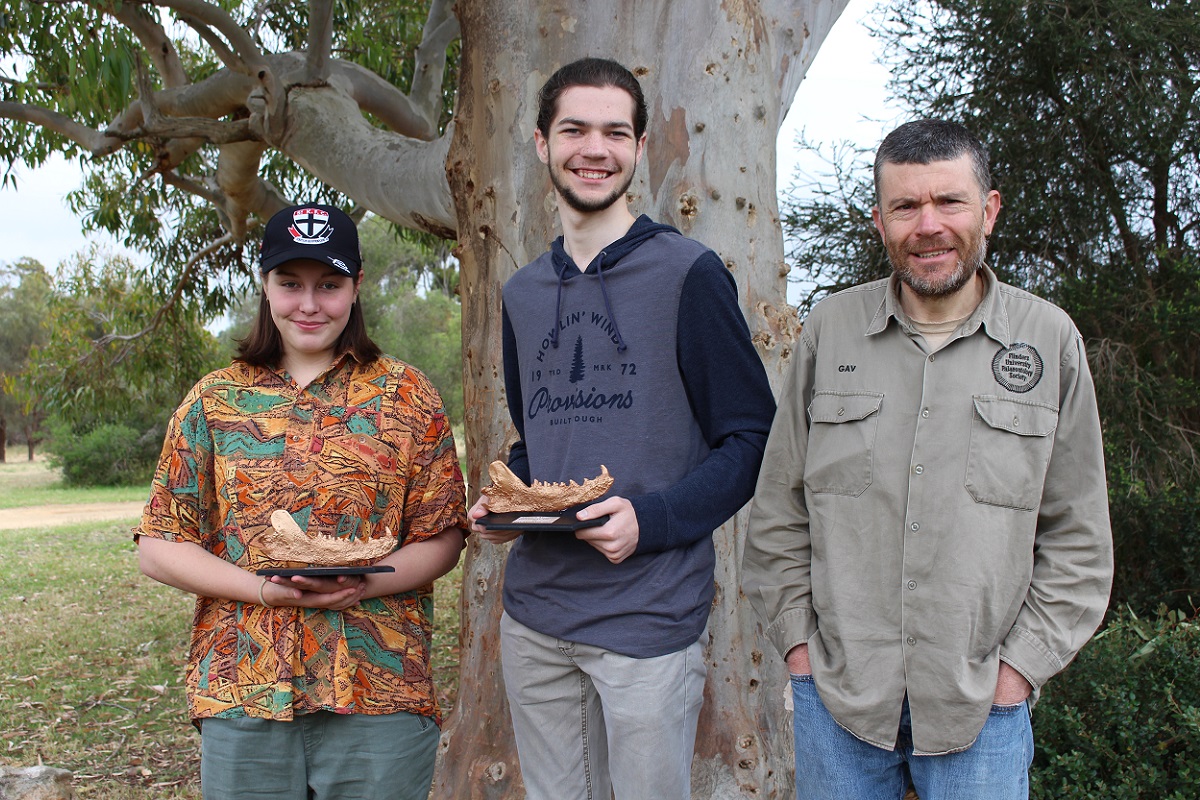
Two eager high school students have been introduced to the thrills of palaeontology field work through winning the annual James Moore Memorial Prize in Palaeontology.
South Australian students Laura Childs and Tasman Dixon joined Flinders Palaeontology students during the department’s trip to Naracoorte Caves in December 2018.
Their journey follows the footsteps of late Flinders student James Moore, who took his first Flinders palaeontology field trips to the Naracoorte Caves in 2007, to sort bones and assist in digs while still at high school in Whyalla.
Mr Moore loved the mystery and excitement of fossil hunting and was a long-time student and technical officer in the Flinders Palaeontology Laboratory, until his life was cut short in a fatal car crash on the Eyre Peninsula in December 2014.
The James Moore Memorial Fund was established in 2015 to honour his memory. It provides funds for two annual prizes that enable one regional and one metropolitan student to join an expedition with Flinders palaeontologists, then help curate the fossils collected back in the Flinders Palaeontology Laboratory.
One of the 2018 prize winners, Tasman Dixon from Glenunga International High School, wrote in his prize submission that he has been transfixed by prehistory since he was two years old, beginning with dinosaurs before including all prehistoric life.
“I love how palaeontology acts as a check to our hubris as humans, making us acknowledge and appreciate our comparatively tiny part of a history that spans an incomprehensible timeline,” wrote Tasman.
“Palaeontology is our only window into a world before humans, a unique and valuable tool for exploring how the Earth has changed throughout its life. This is vital in tackling current global issues like climate change and environmental destruction.
“I’m also an artist, and I love the endless inspiration that the fossil record gives me, with so many wonderful lost creatures and environments to imagine and recreate.
Laura Childs, from Trinity College in Gawler, has ambitions to become a zookeeper, and believes that understanding how animals have evolved will improve her understanding of living animals.
“Fossils provide an understanding of how evolution by natural selection works,” wrote Laura in her submission. “We can see how animals have evolved over the years and what their physical structure once was.”
Flinders University and the Moore family encourage ongoing support for the James Moore Memorial Fund, to ensure James’ passion for palaeontology can live on and inspire future generations. For further information, please visit the webpage

